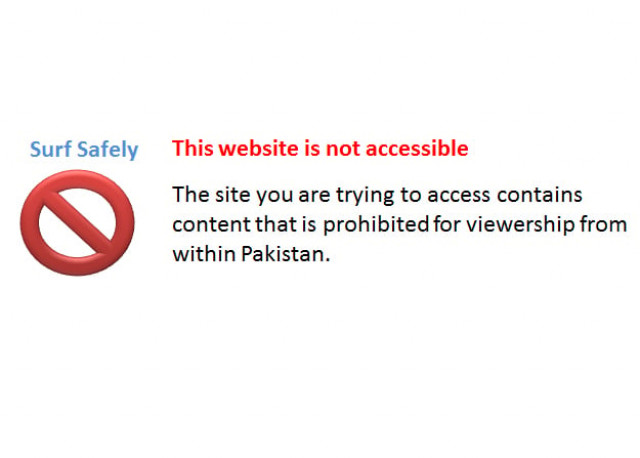Blocking the internet
A lot more clarity is required as to exactly why a site is ban and greater transparency about the process is needed

The bans on any website in Pakistan are so widely flouted as to be rendered almost irrelevant in many instances, and it is curious that there has been no attempt to prosecute those who circumvent the ban STOCK IMAGE
Access to parts of the internet in Pakistan is already blocked, and the ban on the popular YouTube website still persists despite attempts to get it lifted. The Islamabad High Court is currently hearing a case in response to a petition filed by an NGO that seeks to protect the rights of internet users. The case hinges around the shadowy way in which the government operates regulation of the internet. Currently and according to the Pakistan Telecommunication Authority (PTA), it blocks 50,000 pornographic websites and another 10,000 considered blasphemous — but the process by which it does so, and under what legislation, is at issue. The Inter-ministerial Committee for the Evaluation of Websites is completely opaque in its workings. It has yet to cite a law under which any ban may be made. The judiciary appears to be uneasy about this as well, and Justice Athar Minallah questioned the head of the PTA as to this matter — and got no definitive answer. The bans on any website in Pakistan are so widely flouted as to be rendered almost irrelevant in many instances, and it is curious that there has been no attempt to prosecute those who circumvent the ban — presumably because they have not broken any law by so doing. Yes, there are websites that may need to be banned, but a lot more clarity is required as to exactly why and greater transparency about the process is needed, particularly as there are suspicions that some bans are politically motivated.
Published in The Express Tribune, January 22nd, 2015.
Like Opinion & Editorial on Facebook, follow @ETOpEd on Twitter to receive all updates on all our daily pieces.














COMMENTS
Comments are moderated and generally will be posted if they are on-topic and not abusive.
For more information, please see our Comments FAQ